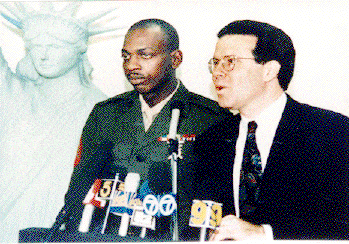5th Circuit Rules on CSPA: Why Wang Got It Wrong
 On September 8, the U.S. Court of Appeals for the 5th Circuit, in a unanimous decision, ruled that “contrary to the BIA’s interpretation in Matter of Wang, the benefits of 8 U.S.C. section 1153(h)(3) unambiguously apply to all petitions described in section 1153(h)(2)…”
On September 8, the U.S. Court of Appeals for the 5th Circuit, in a unanimous decision, ruled that “contrary to the BIA’s interpretation in Matter of Wang, the benefits of 8 U.S.C. section 1153(h)(3) unambiguously apply to all petitions described in section 1153(h)(2)…”
Thus, in the clearest and most persuasive Federal Court decision discussing CSPA’s “automatic conversion” clause, the 5th Circuit ruled that this clause applies to all derivative beneficiaries.
The petitioner in the case of Khalid v. Holder is a native of Pakistan who entered the U.S. as a ten-year-old visitor in June 1996. In January 1996, his aunt, a U.S. citizen, had submitted a visa petition under the 4th preference family category sponsoring his mother and her family for green cards. However, by the time that the petition became current in February 2007, Khalid was 22 years of age. The petition was pending so short a time that, even after performing the mathematical calculation, Khalid had aged-out and was no longer a child.
Later in 2007, Khalid’s mother filed a 2B visa petition and requested that her son be granted the June 1996 priority date under CSPA’s automatic conversion clause. Simultaneously, Khalid applied for adjustment of status under section 245i. The USCIS denied both his mother’s request and Khalid’s application for adjustment of status. The government then placed him under removal proceedings. Without the earlier priority date, Khalid would have to leave the U.S. and would not become eligible for an immigrant visa until at least 2015.
Client Reviews

Know Their Job Well And Perform It Flawlessly
“Don't do the mistake we did and try to save few bucks going with nonprofessionals and sole practitioners! It will end up not only costing you much more in the long run, but also putting your status in jeopardy which can have a priceless impact. It is one of the most important steps in your life.”
- Sgt. Danny Lightfoot, Los Angeles, California
Read More Reviews
Zoom Consultations Available!
Before the Immigration Judge, Khalid renewed his application for adjustment of status. However, the Judge relied on the BIA’s recent decision in Matter of Wang and denied his application, as did the Board of Immigration Appeals. Khalid then filed a petition for review with the 5th Circuit.
The 5th Circuit, in its decision, quoted Ochoa-Amaya v. Gonzales, 479 F.3d 989, 992 (9th Cir. 2007) which states that the purpose of CSPA is to “provide age-out protection for aliens who were children (under 21) at the time that a petition for permanent resident status was filed on their behalf.” The panel also quoted Padash v. INS, 358 F.3d 1161, 1173 (9th Cir. 2004) for the proposition that CSPA addresses “the often harsh and arbitrary effects of the age-out provisions under the previously existing statute.”
The Court held that the statute is clear and unambiguous with respect to which petitions that the automatic conversion clause applies to. There is general agreement that the petitions subject to subsection (h)(1) of section 1153 are those described in subsection (h)(2), which includes all derivative beneficiaries. However, the Court found that the Board erred in Matter of Wang when they held that the matter of which petitions were subject to subsection (h)(3), the automatic conversion clause, was ambiguous. The Court criticized the Board for reading subsection (h)(3) outside of the “statutory context”:
“The BIA discounted subsection (h)(2) because (h)(3), unlike (h)(1), does not expressly reference it. Yet, the BIA’s analysis ignores the fact that (h)(3) expressly references (h)(1), which in turn expressly references (h)(2). The benefits of automatic conversion and priority date retention are explicitly conditioned on a particular outcome from the formula in (h)(1) – that the alien’s “age” is at least 21…In light of the interrelated nature of the three provisions, reading the subsection as a whole confirms that Congress intended (h)(3) to apply to any alien who ‘aged-out’ under the formula is (h)(1) with respect to the universe of petitions described in (h)(2).”
In addition, the Court’s decision offers a convincing rebuttal to the 2nd Circuit’s “restrictive reading” of CSPA’s automatic clause in Li v. Renaud:
“Nothing in subsection (h)(3) states or implies that the petitioner cannot change as a result of a conversion, and…certainly nothing prevents Congress from allowing for such conversions…”
The Court concluded by granting Khalid’s petition for review and remanding his case to the BIA for further proceedings.
The simple and compelling logic of the Court’s analysis and holding in Khalid v. Holder provides ample reason for both the 2nd and 9th Circuits to reconsider their restrictive interpretations of CSPA’s automatic conversion clause. At the very least, the split in the Circuits will elevate this important issue to the Supreme Court to decide which Circuit’s interpretation is correct.
On August 15, a Motion for a Rehearing was filed with the U.S. Court of Appeals for the 2nd Circuit.




